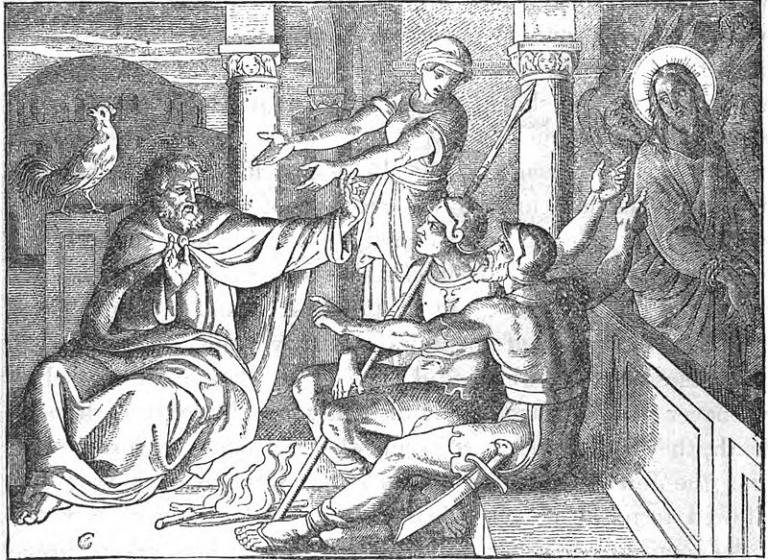Catholic News Service reported on the opening of the Vatican Summit:
Opening the Vatican summit on child protection and the clerical sexual abuse crisis, Pope Francis said, “The holy people of God are watching and are awaiting from us not simple, predictable condemnations, but concrete and effective measures” to stop abuse.
I don’t know that I am comfortable identifying as one of the “holy people of God,” but I am watching, along with millions of others. And I can’t say that I am watching with great hope or faith in our hierarchical leaders to sort this out.
This is not to say that I think bringing in laypersons would be kind of magical fix, because the cult of power and secrecy that we refer to as “clericalism” is enabled by many laypersons. I don’t even think that introducing women’s voices into the college of cardinals would itself be a guarantee of reform – though it is worth doing on its own right – because women can uphold and defend clericalism, and promote systems of supremacy, as well as men can.
Unless the culture of clericalism is toppled, one can guarantee that any woman selected to join the ranks of the elite would be carefully vetted to ensure that she would continue to promote the hierarchical agenda.
And unfortunately, to those of us who are watching – holy or not – the heart of that agenda has been made very clear. Over and over, in spite of lessons we should have learned from the past, the church’s leaders have prioritized ecclesial power over the good of persons. Victims and whistle-blowers have been accused of “causing scandal” – as though the true scandal were not the abuse itself.
Evidence Destroyed Deliberately
And now we hear from Germany’s Cardinal Marx that the church leaders actively destroyed files documenting abuses of children:
“Files that could have documented the terrible deeds and named those responsible were destroyed, or not even created,” said Marx, beginning a list of a number of practices that survivors have documented for years but church officials have long kept under secret.
“Instead of the perpetrators, the victims were regulated and silence imposed on them,” the cardinal continued. “The stipulated procedures and processes for the prosecution of offences were deliberately not complied with, but instead cancelled or overridden.”
The Institutional Disease
There is something about the nature of institution, especially those with an authoritarian structure, that tends towards a kind of disease of self-referentiality according to which its sole purpose in existence is simply that – to exist, to go on existing, and thus to defend itself harshly against any criticism. This is an essential condition of the nation state, as we see this in cases of nationalism and extreme patriotism, “my country, right or wrong.” You see it in white supremacy. You see it in corporatism, when a company ceases ot think of itself as existing to provide goods and services to the people, or to add something to the common good, but simply to be, to batten – to “provide value for its shareholders,” as they put it.
Persons, we understand in ethics, are ends in themselves. When institutions start regarding themselves this way, they cease to serve persons.
Latent beneath this trend towards self-referential justification, however, is a deep existential fear, which means the defenders of the institution must be forever circling the wagons, constantly ready to strike back even against legitimate criticism. Anything that could possibly make the institution look flawed must be shot down or hidden away.
The Ultimate End: Defending Its Own Authority
Fellow Patheos writer Mindy Selmys addressed this when writing about the Papal Birth Control Commission, at which it was determined that – against all the evidence to the contrary from married persons – that they needed to keep reiterating the existing teaching on contraception for fear of loss of credibility:
Frankly, I’m pretty well able to get my head around the idea that the involuntary sterilization of the disabled, the extermination of the Downs’ community in utero, and the impoverishment and isolation of women and children as a result of “sexual liberation,” are all much greater forms of suffering than struggling with NFP. And so long as I thought these were the issues at stake, I was okay with the idea of being told that I had to take my place on the front lines, and to hold my position for as long as was humanly possible. (I did, as I’ve noted earlier, have serious problems with the fact that the hierarchy sometimes seems to behave about this issue much like the high command does in Paths of Glory, but whatever.)
So, I wanted to get historical support for this thesis and naturally my research led me to the Papal Birth Control Commission.
And that’s when the I totally lost my shit.
Because the bottom line for the guys who seemed to be responsible for the decision to promulgate the teaching as it was promulgated wasn’t any of those important issues that I mentioned above. They got a mention, sure, but there were actually reasonably good arguments put forward on the other side to suggest that the Church’s ability to effectively combat the evils described above was actually going to be compromised by an overly absolutist approach to contraception.
The argument, basically, was that by reiterating a natural law argument that a) no longer corresponds to widely accepted notions of the nature of reality, b) is originally derived from faulty medical premises about how human sexuality actually works, and c) doesn’t actually make rational or logical sense, the Church’s witness would be weakened. By sticking their heels in on this point they would lose credibility and people would simply dismiss them on all points of sexual teaching. Which frankly, is in fact what has happened.
I don’t know if Paul VI could actually have prevented that by producing a different document. I do know that the critics of the approach taken in Humanae Vitae correctly predicted the outcome.
But that wasn’t the real problem. The real sticking point, the thing that made me angry, was that finally someone had said “Hey, let’s actually ask some married people…and even (shock horror) some women how this stuff works before we pontificate about it.” And they did. And the married people, especially the women, said “This does not work like you have always said it does. At all. This is ruining my life/my marriage/my children’s lives. It DOES NOT WORK!”
And they said it clearly, cogently and persuasively enough that the commission – a commission that was still dominated by clergy and theologians – voted overwhelmingly that the teaching both could change, and needed to change.
Out of 72 members, only 7 remained unconvinced. All of them were celibate clergy.
They spelled out the reason quite explicitly in their minority report:
If it should be declared that contraception is not evil in itself, then we should have to concede frankly that the Holy Spirit had been on the side of the Protestant churches in 1930 [when Casti Connubii was promulgated] and in 1951.
It should likewise have to be admitted that for a half a century the Spirit failed to protect Pius XI, Pius XII, and a large part of the Catholic hierarchy from a very serious error. This would mean that the leaders of the Church, acting with extreme imprudence, had condemned thousands of innocent human acts, forbidding, under pain of eternal damnation, a practice which would now be sanctioned. The fact can neither be denied nor ignored that these same acts would now be declared licit on the grounds of principles cited by the Protestants, which Popes and Bishops have either condemned, or at least not approved.
In other words: if we admitted that we were wrong it would make us look bad, it would make the Protestants look good, and it would undermine our authority.
That was the bottom line. Not abortion. Not the casual and irresponsible use of women for men’s sexual gratification outside of marriage. Not eugenics. But the authority of men who do not ever have to bear the brunt of the teaching.
More distressingly, many of the proponents of the traditional teaching, at one time or another, openly admitted that the natural law arguments they were using didn’t actually hold up to rational scrutiny. And we have records of private correspondence showing that they were more than willing to engage in a certain amount of Machiavellian political maneuvering in order to get their agenda pushed through.
“What If We Were Wrong?”
One of the most difficult tasks in one’s journey to moral maturity is developing the ability to say “we were wrong.” The church leaders have tied themselves up in a conundrum of self-referentiality according to which it can not say this, because this would undermine its own definition – a definition it has given itself. If the church were to turn out to have been wrong in its teaching, we are informed, she will cease to be the church. All our faith will vanish, poof.
But what if the church is the church – and is also, often, wrong in its hierarchical teachings?
It’s been wrong about slavery, racism, suicide, Judaism, and treatment of dissenters. It’s been wrong in its amassing of wealth and power. And now we find it has done terrible wrong to the least of these among us – and repeatedly covered up for itself precisely in order to maintain its untarnished image of pristine purity and divine authority.
Maybe we need to start considering the possibility that among the many errors of the hierarchy, one of the most fatal is the way in which it has defined and understood itself?
Perhaps we, the laity, need to speak up and say to the leaders: “it’s okay to admit you were wrong.”
Because our faith isn’t in them, after all. Or shouldn’t be.
image credit: https://commons.wikimedia.org/wiki/File:Peter_denies_that_he_is_Jesus%27_disciple.jpg













